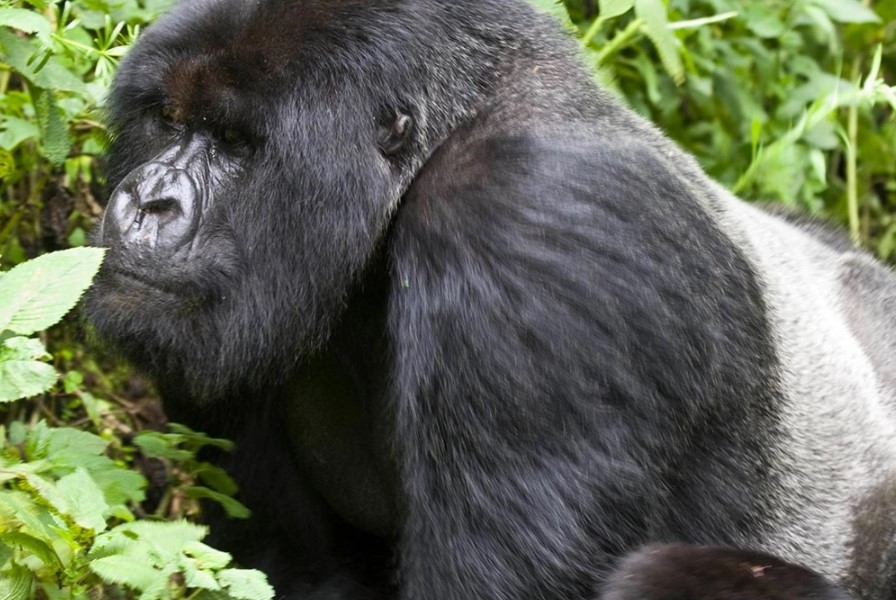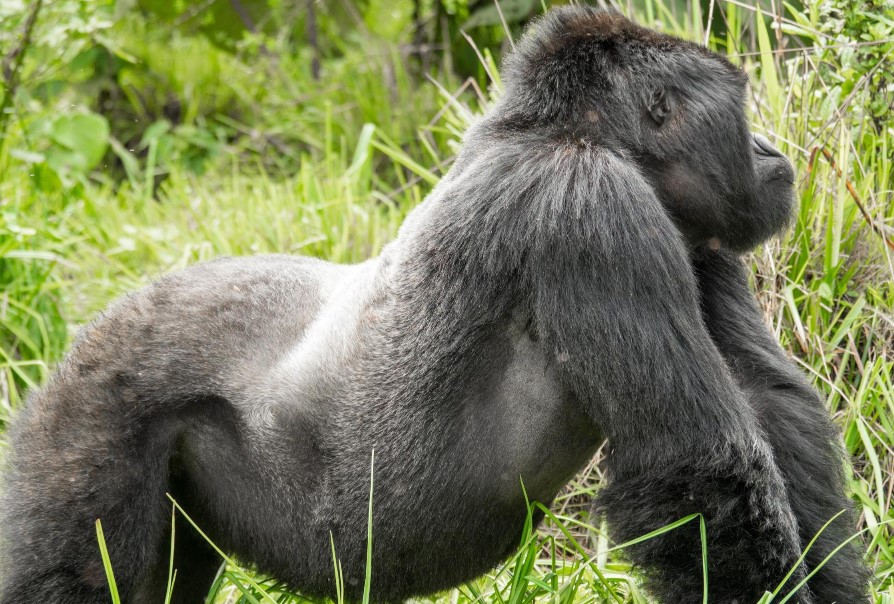Silverback trekking in Uganda- When we think of Uganda, most people understand the peril of Africa’s perilous terrain. It is known for its endemic mountain gorillas, which has boosted its tourism industry. Mountain gorillas in Uganda live only in two national parks, which include Bwindi Impenetrable Forest National Park and Mgahinga Gorilla National Park. However, today we want to focus on the silver back in Uganda. The silverback is the male gorilla that is bigger and more muscular as compared to the female. The silverbacks always lead the group or the Gorilla family. The Silverbacks are leaders, and they play an exemplary role in the group that they head. In other words, they are responsible for creating and leading the gorilla family. In the wild, the silverbacks are very aggressive and sense danger well, so they can easily get irritated and fight.
Here, our gorilla safari packages will lead you to different destinations in Africa where you will be able to see the silver back. The Gorilla Trekking Experience takes you deep into Africa’s forested wildernesses of Bwindi, an isolated park in Uganda, Volcanoes National park in Rwanda, and Virunga National park in the Democratic Republic of Congo. Select from our various comprehensive Gorilla Safari itineraries provided on our site, or browse through to gain some ideas for your ideal expedition, and then contact us for assistance with putting together your plans to think up your own agenda.
The silverback can be found in two national parks in Uganda, namely Mgahinga and Bwindi Impenetrable Forest National Park. The backs of silverback gorillas feature a long silver line/seat of hair, long dark and dense hair, and shaggy skin covers that keep them warm in the cool temperature environment of the woods. With an enormous chest, wide huge feet, and hands, a silverback’s arms are longer and stronger than its legs. They are noted for their relentless efforts to find food throughout the day, and they generally fight to provide for their family.
How to book Silverback trekking in Uganda
Visitors will need to pay the gorilla trekking permit in order to see the silverbacks. The gorilla trekking permit for Uganda now starts at USD700 per person per trek, and this allows you to locate and access the silverback places in Uganda. These permits can be obtained through the Uganda Wildlife Authority headquarters, which are located in Uganda’s capital city, Kampala. You can also book the permits to see the silverbacks through a recognized tour operator like Sunrise.
Travelers who want to book directly with Uganda’s untamed life authority can contact the UWA booking offices, but the cycle will most likely be long and chaotic, which is why we encourage travelers to make plans with dependable visit administrators who have experience working on gorilla journey safaris in Uganda. The visit administrator will assist with the preparation of game plans for silverback gorilla trip convenience in Bwindi, transportation, and the processing of a silverback gorilla travel grant for Uganda. Still, here through our guides, we can book for you the best gorilla trekking permit for you to see the silver back in Uganda. The silverback mountain gorilla can be seen throughout the year, in both the dry and stormy seasons. However, the ideal time to see the mountain gorillas is during the dry season, from June to October for the long dry season and December to February for the short dry season. In Uganda, the dry season is considered the pinnacle season, with many explorers flocking to see the silverback mountain gorillas and go on natural life safaris.
Is it safe to book silverback trekking in Uganda?
Safety is paramount when visiting any of the gorilla trekking sites in Uganda. Indeed, here we place a premium on our clients’ safety. We will ensure your safety and well-being by informing you of any security concerns in the country you will be visiting prior to and during your African Gorilla visit. Our assistants are prepared to drive competently and ensure the customer’s security in urban areas, at lodgings, and when traveling through leisure areas.



Comment (0)